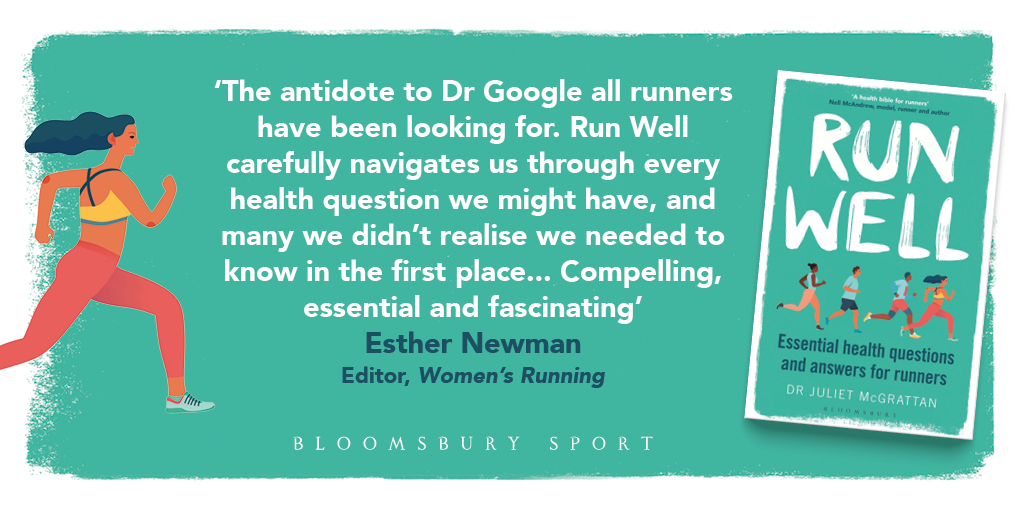Do you run consistently? I do but I didn’t always. I admit I was a bit of a binge runner. I would get really enthusiastic and carried away and run lots and lots for a few weeks and then, for a variety of reasons I would stop. Invariably several weeks, or even months would pass. I would struggle to find my running mo-jo and eventually, after much procrastination, I would haul myself out of the door again. After that run I would feel amazing, cross with myself for having stopped and I’d jump back on the accelerated running wheel again. Then the cycle would repeat!
This is a common story amongst runners. Binge running causes multiple problems. During those periods when you’re running lots, you risk over training, fatigue and injury. Follow this with a period of not running and fitness is lost, muscles weaken and you don’t make progress towards your goals.
Consistent running leads to lots of benefits. Not only will you feel stronger, enjoy your running more and make better progress but you also get the maximum health benefits from your running. It’s far better for your general health to be going out regularly and consistently. It reduces inactivity, cuts down sedentary time and spreads out your cardiovascular and muscle strengthening activity. Your body will repair, adapt and make itself stronger after each exercise bout. Doing this regularly at a controlled level is better than a concentrated time of stress and trauma to the body followed by inactivity.
So what is the secret to consistent running? How can we get off the roller coaster and glide on a hovercraft instead? While every runner’s journey inevitably contains many ups and downs there are lots of things we can do to help ourselves become a more consistent runner. Here are some of my favourites:
- Set good goals. The fastest way to failure is to set an unrealistic target. Goal setting is harder than it might appear. Finding something that challenges you but doesn’t overstretch you can be difficult. It helps to be honest about where you’re starting from. I’m all for aiming high, really high, but the steps that get you to that summit have to be something that you can realistically manage. That might mean they are very small steps, it doesn’t matter, they will get you there.
- Follow a plan. Use the experience of others. Aiming for your first 10k or marathon? Find a training plan from an expert source that you trust. Even better, if you can afford it, get a personal coach. Knowing how much to push the body and weighing that up with recovery is a science and an art. A good plan will prevent you over cooking yourself and will also act as a great motivator to head out on days when you don’t feel like it.
- Be flexible. Yes, have a plan and a goal but always look at the big picture. What else is going on in your life? We all have to accept that things don’t always go smoothly. Consistent running doesn’t mean you can’t take a break if you need one. Be prepared to change your plan and give yourself a day off if you need one. Work, life, families, they can all take their toll on us and be exhausting. To keep running we have to look after our mental health too.
- Don’t ignore niggles. You’ll only be out for longer if you keep running through that recurrent pain. Listen to your body. Get things checked out early especially if they keep happening, don’t go away with rest or are severe. It doesn’t pay to be a martyr. There’s so much that can be done to strengthen weak areas and prevent injuries so get help.
- Make it a habit. This is really important for consistent running. You might choose to run every day or to pick certain days and times in the week. Once something becomes a habit and a default setting then the hardest work is done. Of course, this isn’t always possible but if you’re really struggling to keep running regularly then see if you can build some sort of pattern in.
- Mix it up. Keeping your activity varied really helps. This might just be changing your routes and terrain but it could be not running at all and doing something different. There’s lots of strength and conditioning gains to be got from cross-training so it will help your running and general health. If you’re easily bored then I’d encourage you to mix it up.
- Don’t compare. It doesn’t matter what other people are doing. Don’t be drawn into comparing yourself to others. If doing two miles three times a week means you can keep running week after week then that’s perfect. By all means seek inspiration from others but don’t feel the pressure to increase time and distance because you see others doing it. Not everyone is running 50 miles a week. This is all about finding out what works for you so you can be consistent.
- Make it fun. My favourite way to do this is to involve others. Social running is perfect – a running club session or a run with a friend to catch up each week. It makes you accountable to others which helps with consistency but it makes running easier, interesting and importantly fun. If something isn’t fun then you aren’t going to want to keep doing it.
Consistent running isn’t always easy but once you’re in the swing of it it’s much better than on/off running. You’ll make progress, feel stronger and more confident and you’ll be getting the most out fo the physical and mental health benefits of running.
Do you run consistently or is it a bit stop-start? I’d love to hear your experiences and tips here and on my social media.
My new, best-selling book Run Well: Essential health questions and answers for runners is packed with advice to help you run consistently. With motivation tips and all your running health questions answered it will help to keep you on the road. It’s published by Bloomsbury and available from all good book sellers.

Featured image: tigerlily713 at Pixabay








Without consistency, nothing gets done. Thank you so much for this short but practical guide
You’re welcome. As you say – it’s key but it can be so tricky!